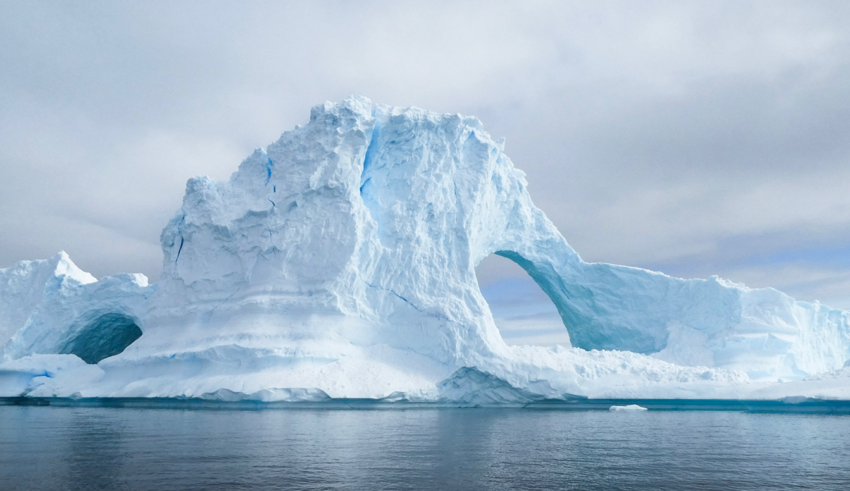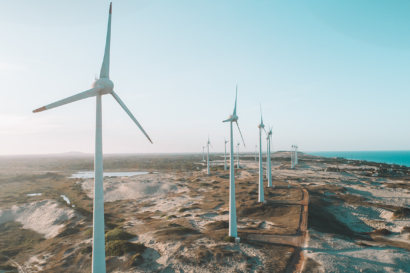AG INSIGHT | 21/09/2017
Think of sustainable practice as a business utility

Nigel Stansfield, President of Interface EMEA, reviews the sustainable business practices of Interface and urges a shift in business mindset to work towards a ‘climate fit for life’.
The climate of tomorrow depends on the sustainable business practices and the ambition of global leaders today. How organisations manufacture and consume goods is placing significant stress on the Earth’s resources. The race to limit this resource dependence and contribute to the planet positively is on, but too few businesses are currently taking part. Many CEOs want to focus on operational and functional conversations but, with the effects of climate change being seen on the daily news and the increasing cost of raw materials, the commercial reality is that sustainable business has to move up the agenda.
Recognising the impact of manufacturing practices, Interface has long been committed to searching for a more sustainable way of working, challenging long-held perceptions and rethinking material production.
Our journey began in 1994, when we made a public commitment to become wholly sustainable by 2020 – our Mission Zero – a target that we have made great strides to meet so far. For example, in 1996, the average CO2 footprint of an Interface product was around 20kg CO2/m2. Today Interface has products with a footprint of 6-8kg CO2/m2 as the benchmark. In our European facilities, we have reduced water use in our manufacturing processes by 98.5 per cent and now use up to 95 per cent renewable energy to make our products. We have also achieved zero waste to landfill in our operations in Europe, and our products in the region are now made from 50 per cent biobased and recycled materials.
Mission Zero is more than an ambition to make manufacturing more sustainable. The commitment also aims to achieve radical social transformation thanks to collaborative working schemes.
Net-Works™, established in 2012 by Interface and the Zoological Society London (ZSL), is one such programme. Using an inclusive and circular business model, the team focused on tackling the environmental problem of discarded fishing nets in some of the world’s poorest coastal communities. Today, Net-Works™ enables local residents in artisanal fishing communities in the Philippines and Cameroon to collect, process and sell discarded fishing nets back into a global supply chain. Not only does it provide a source of recycled nylon for carpet tile manufacturing, it offers the local community an essential additional income source, and helps protect local natural ecosystems.
Since the project began in 2012, 142 metric tonnes of discarded fishing net has been recycled, with 1,500 families in the Philippines and Cameroon benefiting from the scheme. Net-Works™ is just one example of what can be achieved when organisations from different sectors come together to address a sustainability challenge.
According to international sustainability thinktank, Sustainia, the Net-Works™ model is not only an example of the power of partnerships, it demonstrates that multiple Sustainable Development Goals (SDGs) can be met simultaneously. From promoting sustained economic growth (SDG number 8), to achieving responsible consumption and production (SDG 12), to conserving marine resources (SDG 14), the initiative offers a holistic approach towards creating a more sustainable future.
Now, with the end of Mission Zero in sight, we aren’t resting on our laurels. Last year, we announced the next step on our sustainability quest: Climate Take Back.
A continuation of Mission Zero, Climate Take Back aims to take Interface beyond just eliminating its negative environmental impact towards actually playing a restorative role in the world around us. It is designed to help us become regenerative and reverse climate change, addressing Sustainia’s SDG number 13: Climate Action. It’s an ambitious goal, but reflects our long tradition of continually pushing our own boundaries.
Climate Take Back has four objectives:
- Live Zero – Interface’s philosophy to have zero negative impact and continue its Mission Zero journey
- Love Carbon – change attitudes towards carbon and implement technologies that can sequester carbon positively
- Let Nature Cool – don’t interfere with nature’s ability to regenerate and learn from its example: Interface is working with Biomimicry 3.8 to assess how to run factories as forests
- Leading industry re-revolution – rewriting business as we know it and changing the way businesses operate through collaboration across supply chains and industries
The first step in achieving these objectives is the development of Interface’s prototype carbon negative carpet tile – ‘Proof Positive’. After the tile is made, there is less carbon dioxide in the atmosphere than if it had not been created in the first place. This goes beyond managing emissions, it removes CO2 from the carbon cycle.
Inspired by plants pulling carbon out of the atmosphere through photosynthesis, Interface has taken specifically selected plant-derived carbon and converted it into a durable material that stores carbon, to create Proof Positive. Should this approach to manufacturing products become a mainstream practice, it could significantly contribute to reversing climate change.
Interface is truly proud of its sustainability achievements over the last 23 years, but we recognise there is so much more to do, and we cannot do it alone. Collaboration, pushing boundaries, setting ambitious goals and altering the way we operate have all positively impacted our imprint on the earth, and can help us achieve even greater change in the future.
It is our hope that, through our learnings, sustainable business will become a moot point for organisations, and grow into a mainstream way of thinking. This evolved way of business may not be here today but, to have a climate fit for life, it has to be around the corner.
Nigel Stansfield is President of Interface EMEA.
Interface, Inc. is the world’s largest manufacturer of modular carpet and recently expanded into modular resilient flooring with a new luxury vinyl tile line. Our hard and soft tiles are designed to work together in an integrated flooring system. We are committed to sustainability and minimizing our impact on the environment while enhancing shareholder value. Our new mission, Climate Take Back, focuses on driving positive impacts in the world to create a climate fit for life.
For additional information: interface.com and blog.interface.com. Follow Interface on Twitter, YouTube, Facebook, Pinterest, LinkedIn, Instagram, and Vimeo.



